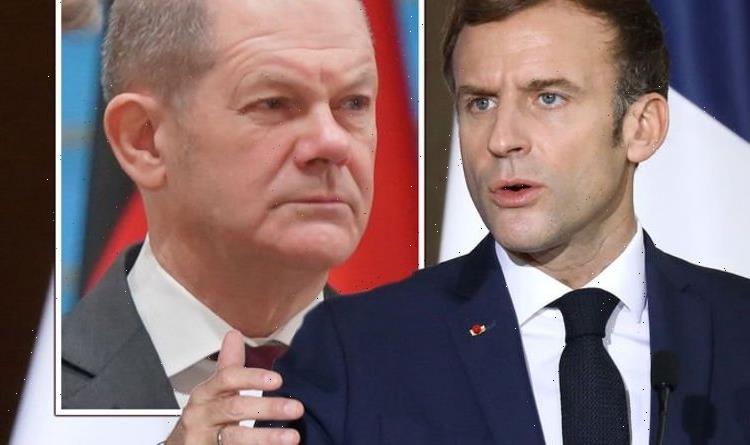Storm Barra: Flooding across Europe as storm arrives
We use your sign-up to provide content in ways you’ve consented to and to improve our understanding of you. This may include adverts from us and 3rd parties based on our understanding. You can unsubscribe at any time. More info
The Horizon Europe project brings together scientists from across the continent to combat disease, prevent climate change, and develop space technology. As part of the Brexit deal, the UK was granted continued membership in the Horizon Europe innovation fund, but the EU has since blocked the UK from the project until disputes are settled over the Northern Ireland Protocol and French fishing licences.
The UK was due to contribute £15billion to the project with a rolling total of £7billion more each year, and the delay in an agreement is creating major problems for the UK.
Funding cannot be released to UK collaborators until there is a formal agreement, and if it will take many more months for an agreement to be made, EU researchers will not include UK scientists in their projects.
As the Horizon Europe project continues without any involvement from Britain, EU researchers have reported a lot of difficulties and technical woes in the £80bn research project.
According to Science|Business, first impressions from European researchers have found that many researchers “struggled to define the impact of their projects”.


The European Commission demands that the scientists submit a Horizon Europe pillar two proposals which they view as time-consuming and bureaucratic.
Cruz Enrique Borges Hernández, a researcher at the University of Deusto, Bilbao, Spain found working on the project challenges.
He said: “It’s a complete level harder to build the consortium, to organise the partners, to understand the call and try to put [in place] the right pieces.
“This has increased the complexity to a huge level. You have to do a lot of more things with less budget.”

Furthermore, researchers complained about delays after the programme got caught up in the long dispute about the EU’s overall seven-year budget.
While member states wanted to cut research spending, the European Parliament wanted to increase it, leading to delays.
The final budget was not agreed upon until December 2020, after which it took another six months to properly launch the programme.
Furthermore, many researchers were frustrated with technical issues that plagued the Commission’s overloaded platform, according to Science|Business.
DON’T MISS:
Nostradamus ‘predicted’ asteroid strike and rise of robots in 2022 [REVEAL]
Mystery illness outbreak claims 97 lives as WHO sent to investigate [INSIGHT]
Sturgeon slammed as Scotland facing ‘biodiversity crisis’ [ANALYSIS]


Scientists faced technical woes like being unable to save forms, submit proposals or change the participant order.
Taivo Raud, head of grant office at the University of Tartu, submitted 98 Horizon Europe proposals in 2021.
He too agreed that the technical issues were a problem.
He said: “The main obstacles in the submission process have been technical ones, connected with the funding and tenders portal capability to process all information and data close to the deadline.”
In response to the EU’s decision to use Horizon Europe as a bargaining chip in Brexit negotiations, Science Minister George Freeman has said the UK is ready to set up its own scheme.
Source: Read Full Article


